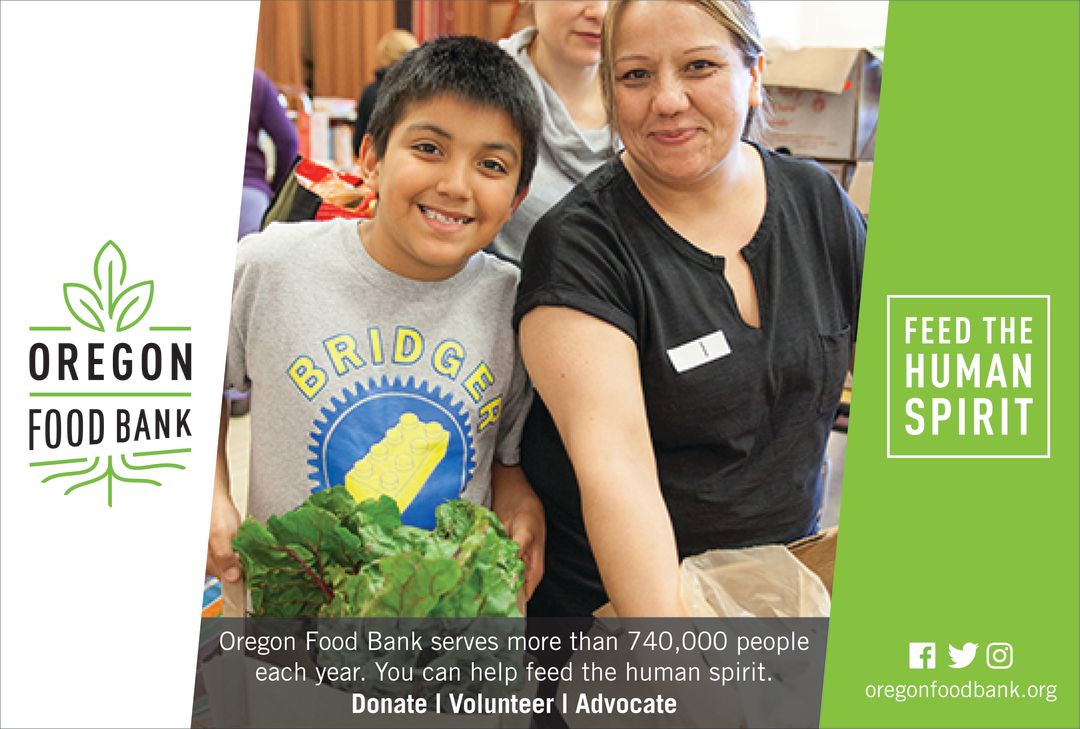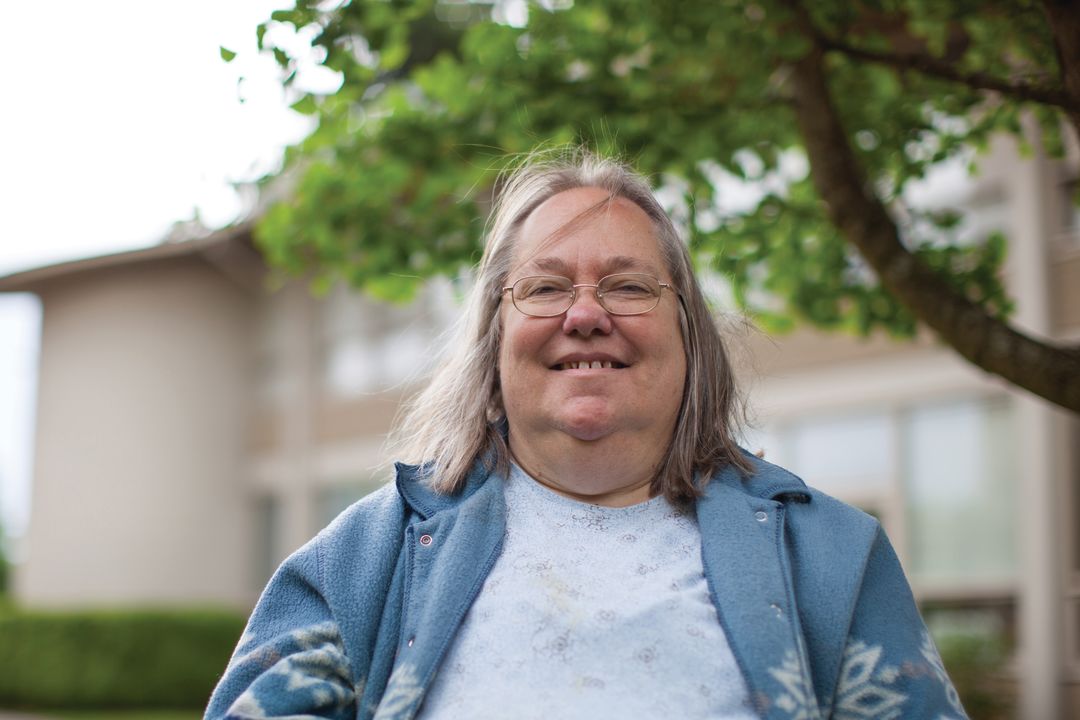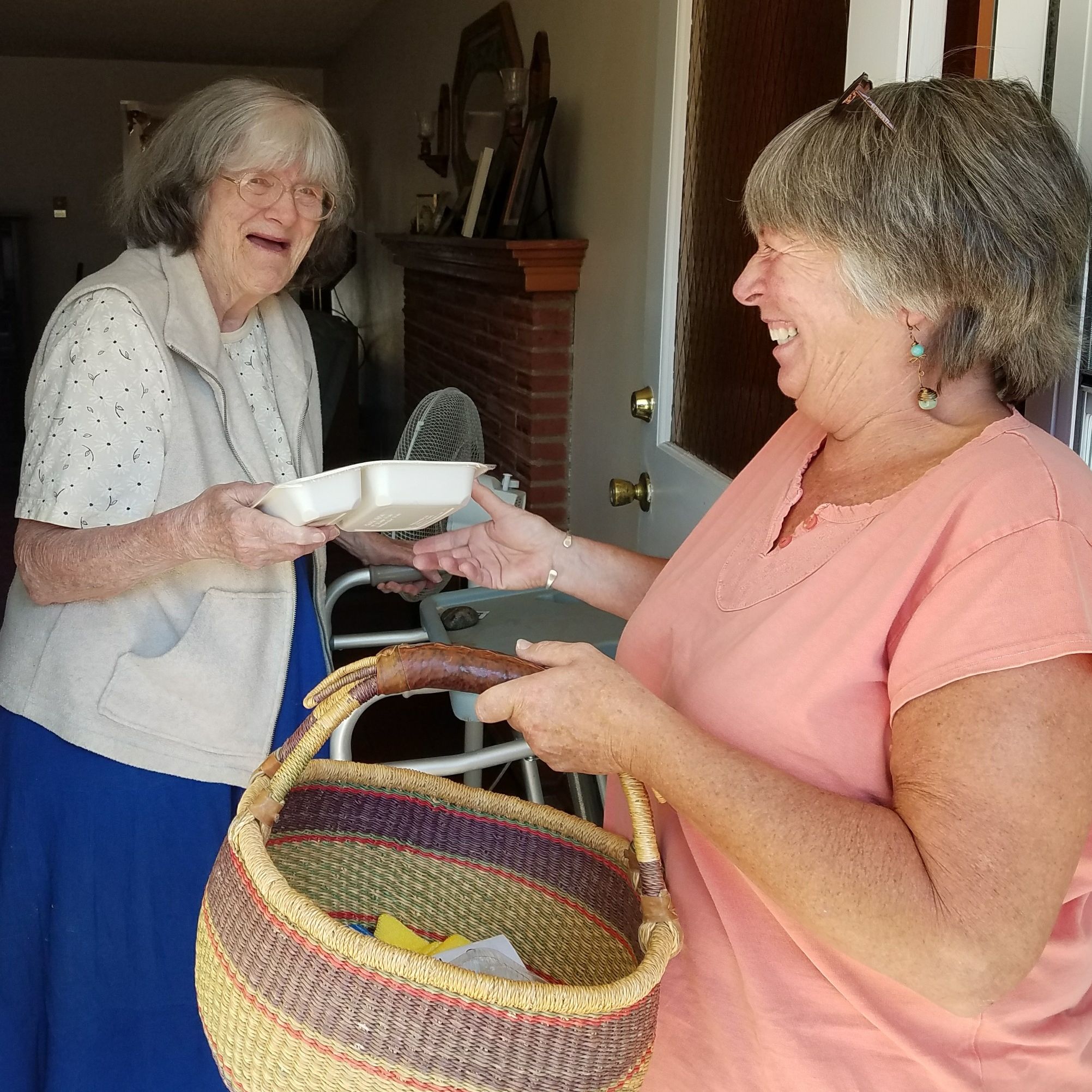The Tight Connection Between Hunger and Housing

Oregon Food Bank seeks to end hunger in all communities. Providing food to help someone make it through the week is an important part of the mission. But there is more to ending hunger than just putting food on a plate. To truly end hunger, the root causes must be addressed.
In surveys conducted by Oregon Food Bank, most people who use food pantries say they struggle to pay the rent or mortgage. Across the state, housing prices are rising and wages can’t keep up. Families prioritize the items in their budgets but more and more, there is not enough money at the end of the month. This means they stop at pantries on the way home from work instead of the grocery store.
Gemma moved to Oregon from the Philippines and has lived here for five years. She’s had challenges finding work, so she went back to school to improve her English. “The biggest part of our income goes to rent and it goes up every year,” she says. “We are getting food at the food bank, then I have money to pay bills.”

Gemma
“If I didn’t have housing assistance I would be homeless,” explains Marleen. “Folks just getting by are living in fear every day that their rent is going up
and they’ll be out. Or, if their landlord is going to move everybody out so they can remodel and raise the rents.” Marleen attends Portland Community College, receives some help from the Supplemental Nutrition Assistance Program (SNAP, formerly known as food stamps) and visits a food pantry to make ends meet.
During this year’s legislative session, Oregon Food Bank joined affordable housing organizations to push Oregon lawmakers into addressing the housing crisis. Ultimately the legislature agreed to a plan that would put $90 million into the housing crisis every two years. It’s just a start though. More solutions will be needed to find everyone a home.
Miriam lived in her own apartment for 11 years, but after a dispute with her landlord she ended up homeless. Her disability and her age made it difficult to find a new place and she ended up living in a shelter and with a friend before a new place to live was available. “I’m always vulnerable,” she says. “I worry about it happening again.”

Miriam
When you have housing, when you live inside, you can plan,” explains Mecca. “On the streets, you live day by day.” Mecca knows the streets too well. He ended up there after his family situation came apart. “You don’t have a place where you could clean up,” Mecca says. “A business doesn’t want you coming in unwashed. You can’t show up at a Subway shop, or a McDonald’s, dirty.” Now off the streets, Mecca spends his days putting his life back together and volunteering.
Hunger and housing are intricately linked. When people find a place they can call home, their lives improve and some will be able to reduce or eliminate their dependence on food assistance. Solving the housing crisis will require a unified effort and creative solutions and may seem impossible, but in the end everyone will win because communities will be stronger.
Oregon Food Bank invites everyone to join the mission to eliminate hunger and its root causes, visit oregonfoodbank.org/advocate for more information.






